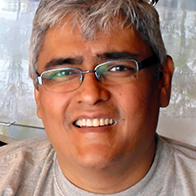Little did Haniza Talha realise – eight years ago – while driving on the New Pantai Expressway across Taman Medan in Petaling Jaya, Selangor, something quite unexpected and positive was going to happen to her, as well as for the people living in the area.
She recalls being "shocked at that time as to why the surroundings and the residents living there looked so neglected – compared with others living in neighbouring Old Klang Road."
And then, approximately a year later, she pleasantly found herself being elevated to be part of the solution to the problem.
Haniza contested in the Taman Medan constituency in 2008 – and won!
She succeeded in garnering the seat with a 4,433 majority against the Barisan Nasional candidate to become the state assemblyman under PKR, where she has remained.
In May 5, 2013, Haniza was re-elected to her position in the 13th general election.
Her victories in the ballot boxes have only given her an impetus to try and change the situation into one which is thriving with economic activities and redevelopment for the residents.
"It is certainly not an easy task, especially when you consider it once caught the world's attention for its racial clashes, deaths and scars that can never be erased till this very day," Haniza tells me.
"The uphill task for me now as the assemblyma (Adun) is to restore harmony among the majority Malays and Indians in the ex-slump area," she adds, pointing out that the "slump mentality still persists physically", even though it has been wiped out in early 2000.
(The slump mentality is a behavioural problem. Values associated with living in slumps are carried on, such as free services – no bills, no rentals, no proper drainage systems and rubbish collection [disposed of indiscriminately]. Others include low self-esteem issues to illegal construction of houses and extensions.)
Haniza says her manifesto focuses on five major current issues.
These are to raise the levels of infrastructure up to city standards so that facilities such as road access – as well as wider roads – to good building standards, safety and others are adequately provided for in the population ratio.
Recreational spots for sports and outdoor activities are another must. The only pockets of these available today are those left after buildings have been constructed.
Most are unsuitable and unsafe. As a result, children and youth have nowhere to run and play – except on roads with traffic, which court danger. Without proper recreational spots, youth go elsewhere and end up in unhealthy habits and activities.
Another goal is to strengthen the family institution. The family plays an important role in instilling values.
"Ways must be found to alleviate some of the burdens of parents who need to work in order to provide for their family and, at the same time, give enough love and care to their children in order to avoid them from getting into social problems," says Haniza.
Helping to increase the income of residents is also something the Adun has been trying to do. Most income-earners get RM3,000, or less.
This is a toughie for big families. Wives, who look after their children, need to have side incomes to survive.
The last, but not least, goal is to encourage knowledge-driven activities. In turn, Haniza says it will improve the levels of education.
"This is critical because of their low-level education, most poor families don't have well-paid jobs. So all parties, from parents to children, have to work to make ends meet."
Haniza strongly believes that a good education in one sure way to get out of poverty. So support and encouragement from parents and society, to excel in studies through reading, educational trips and others will go a long way in helping individuals to perform well in their studies.
"Education is the one thing that can break the vicious cycle around the families in Taman Medan.
"Many breadwinners are low-income earners: lorry drivers, despatch persons and construction workers, to name a few.
"They get paid RM1,000 or less, some get paid on a daily basis – depending on the work done each day.
"Education for their children will in the long run open avenues for changed attitudes, different mindsets and better living standards."
Haniza's office introduced a successful "Child Education Adoption Programme", which ran for two years. Students from Form 4, who were carefully selected, were paired with a student "brother" or "sister" from a nearby university or college.
The latter acted as mentors for the less educated students.
They took part in special activities where adoptees received coaching from their mentors. Each activity was designed to build confidence and self-esteem, as well as instil values and change negative mindsets.
Even the parents of the young students began seeing changes in their children. Some of the adoptees also went on to receive study offers from at least one of the participating institutions of higher learning. – February 2, 2015.
* For information, cotact: Pusat Khidmat Rakyat ADUN Taman Medan, No. 25 (Tingkat Bawah), Jalan PJS 1/32, Taman Medan Pejasa, Off Jalan Klang Lama, 46150 Petaling Jaya, Selangor. Tel: 03-7781 2151; Fax : 03-7781 8704; Email: [email protected]
* This is the personal opinion of the writer or publication and does not necessarily represent the views of The Malaysian Insider.


Comments
Please refrain from nicknames or comments of a racist, sexist, personal, vulgar or derogatory nature, or you may risk being blocked from commenting in our website. We encourage commenters to use their real names as their username. As comments are moderated, they may not appear immediately or even on the same day you posted them. We also reserve the right to delete off-topic comments